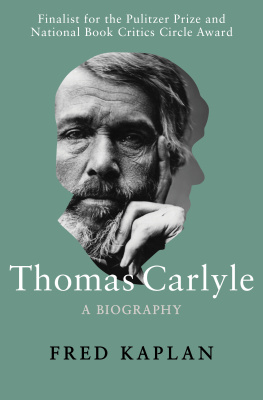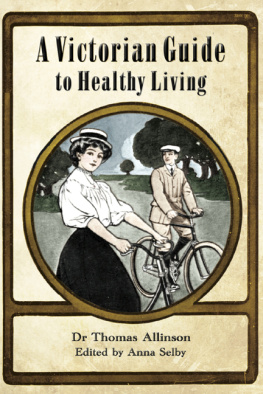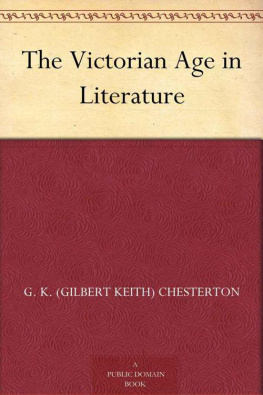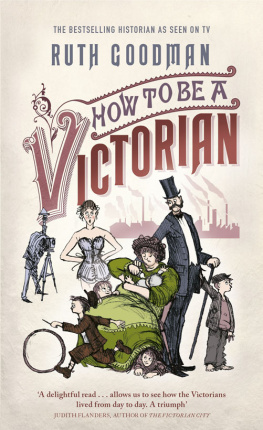ROUTLEDGE LIBRARY EDITIONS: THE VICTORIAN WORLD
Volume 1
THREE VICTORIAN TRAVELLERS
THREE VICTORIAN TRAVELLERS
Burton, Blunt, Doughty
THOMAS J. ASSAD
First published in 1964 by Routledge and Kegan Paul Ltd
This edition first published in 2016
by Routledge
2 Park Square, Milton Park, Abingdon, Oxon OX14 4RN
and by Routledge
711 Third Avenue, New York, NY 10017
Routledge is an imprint of the Taylor & Francis Group, an informa business
1964 Thomas J. Assad
All rights reserved. No part of this book may be reprinted or reproduced or utilised in any form or by any electronic, mechanical, or other means, now known or hereafter invented, including photocopying and recording, or in any information storage or retrieval system, without permission in writing from the publishers.
Trademark notice: Product or corporate names may be trademarks or registered trademarks, and are used only for identification and explanation without intent to infringe.
British Library Cataloguing in Publication Data
A catalogue record for this book is available from the British Library
ISBN: 978-1-138-66565-1 (Set)
ISBN: 978-1-315-61965-1 (Set) (ebk)
ISBN: 978-1-138-63842-6 (Volume 1) (hbk)
ISBN: 978-1-315-63780-8 (Volume 1) (ebk)
Publishers Note
The publisher has gone to great lengths to ensure the quality of this reprint but points out that some imperfections in the original copies may be apparent.
Disclaimer
The publisher has made every effort to trace copyright holders and would welcome correspondence from those they have been unable to trace.
THREE VICTORIAN TRAVELLERS
BURTON, BLUNT DOUGHTY
by
THOMAS J. ASSAD
First published 1964
by Routledge and Kegan Paul Ltd
Broadway House, 68-74 Carter Lane
London, E.C.4
Printed in Great Britain
by Butler and Tanner Ltd
Frome and London
Copyright Thomas J. Assad 1964
No part of this book may be reproduced in any form without permission from the Publisher, except for the quotation of brief passages in criticism
Contents
Illustrations
(Between pages 134 and 135)
THIS book is concerned with impressions of Arabic culture on British sensibilities before the first World War. More particularly, it is concerned with three Victorian travellers, all of whom knew Arabic culture at first hand through their travels in the Middle or Near East, and especially in Arabia, Arabic North Africa, and the seaboard of the eastern Mediterranean. The present atmosphere, made heavy with partisan zeal and clouded by the powerful instruments of modern propaganda, is not conducive to clear perception; but when we step through this period to a time some thirty or forty years before that war, the passion of the present is swept away and we can see as in the detached, broad outlines of history the fundamental British attitudes towards the Arabs.
These attitudes are most clearly discernible in the informed, widely circulated opinions of British men of letters who had intimate contacts with the Arabs. It is unfortunate in this respect that the career of T. E. Lawrence has overshadowed the importance of his English predecessors in the Arab world. His daring exploits during the war of 191418 and the subsequent popularity of The Seven Pillars of Wisdom enabled him to capture the imagination of the English-speaking public in the early twentieth century. And yet his remarkable expeditions in the East, his adhibition of Arabic culture, and his political intentionswhatever may be the final estimate of thesewere anticipated by Sir Richard Francis Burton, Wilfrid Scawen Blunt, and Charles Montagu Doughty. And taken together, the views of Burton, Blunt, and Doughty are fairly representative of the late-Victorian attitudes towards the Arab world. Although Burton was born some twenty years before the others and his best travel-books were published in the fifties, the most important decade for this study is the eighties, when Burton was working on his translation of the Arabian Nights, Blunt was deeply immersed in Eastern politics, and Doughty was laboriously writing Arabia Deserta. And this is precisely the time when British Imperialism reached its peak.
With their palpably different sentiments regarding British Imperialism, and with their no less palpably different temperaments, Burton, Blunt, and Doughty came to three different views, each of which was thought to be the proper understanding of the Arab world. It is all too easy for us to point out the limitations of these views: Burtons view of the Arab was too grotesque; Blunts, too ornate, too sentimental; and Doughtys, too pure, too simple, too harsh. In each instance, the particular view joined with an innate feeling that the Englishman was ipso facto superior to the Arab and therefore engendered the respective modes of mastery, condescension, and chauvinism. It is much more difficult to understand the temperaments and sensibilities which made these views so colourful; but the attempt is extremely rewarding in that it involves three fascinating men in an extremely lively period of human history.
In attempting to approach an understanding of these authorsan understanding of their sensibilities and the effect of the impact of Arabic culture on those sensibilitiesI have given primary attention to a consideration of such of their writings as deal directly with the Middle East. But frequently, and especially with Blunt, whose prose is predominantly autobiographical and political in nature, I have emphasized extra-Eastern material. I believe that in such instances the chapter as a whole will vindicate the relevance of what by themselves may appear to be unimportant digressions.
T. J. A.
WHEN Cardinal Newman in his Apologia Pro Vita Sua wanted to impress upon his readers his powers of imagination as a boy, he chose to relate his experience with the Arabian Nights as a good illustration. He wrote, I used to wish the Arabian Tales were true: my imagination ran on unknown influences, on magical powers, and talismans. In Sartor Resartus Carlyle explained the Professors attitude towards miracles by having him say, To my horse, again, who unhappily is still more unscientific [than the Dutch King of Siam], do not I work a miracle, a magical Open sesame! every time I please to pay twopence, and open for him an impossible Schlagbaum, or shut Turnpike? And Ruskin in Sesame and Lilies used the same allusion to Ali Baba when he exhorted his audience to favour the propagation of books and libraries, to get new corn laws established for the British constitutioncorn laws dealing in a better bread;bread made up of that old enchanted Arabian grain, the Sesame, which opens doors;doors not of robbers, but of Kings Treasuries.
It would be very difficult to find many Victorian writers who did not make some allusion to Eastern literature,certain tales of the









